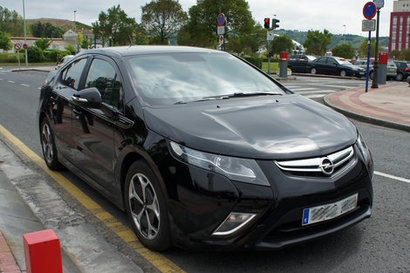
A survey undertaken by the company found that nearly a fifth of people said they would consider buying an electric vehicle for their next car – double the UK Government goal for electric cars to make up 9 percent of the fleet by 2020. However, other findings reveal that concerns over purchase price and range mean nearly a third of people believe electric cars will never overtake petrol and diesel vehicles.
In Baringa’s survey, 18 percent of respondents said they are likely to consider going electric next time they buy a new car. The company is urging the Government to work harder to ensure continued support for the industry and remove barriers to purchasing electric cars. As Tesla’s Model 3 car begins rolling off the production line, and Volvo vows to make only electric engines from 2019, Baringa believes the tide could be turning for electric vehicles.
“Electrification, taken together with the potential for autonomous vehicles, means we are on the verge of a revolution in personal transport” said Oliver Rix, Partner at Baringa Partners. “The next generation may find it hard to believe the level of pollution and risk we currently submit ourselves to on our roads. If we’d asked people ten, or even five, years ago if they’d buy an electric car, the percentage saying ‘yes’ would have been virtually non-existent. But, after a sluggish start for electric vehicles, Tesla, though still a small company in terms of production, has managed to shift perceptions to such a point that large car makers are having to follow. We’re now seeing big companies like Volvo sensing this change in public perception and putting their money and brand influence behind them. With greater public awareness around the environmental impact of petrol and diesel, and a wider variety of electric vehicles to choose from, the only way is up.”
The research also found that 32 percent of people believe electric vehicles will never overtake petrol and diesel cars. This is partly driven by the fact that 55 percent of people are worried about not being able to travel far enough to reach the next charging point, an issue the Government has pledged to address. People are also put off by the cost (54 percent) and concerns about a lack of charging points near home (53 percent).
Mr Rix added that the cost of electric vehicles has been a turn-off since the start. The withdrawal of grant schemes isn’t going to help with that perception, but the market is now at a point where they’re becoming much more affordable. Indeed, Baringa Partners predict that electric vehicles will become cheaper than diesel cars by 2022 and on a par with petrol ones by 2023, alongside improvements in the range of electric vehicles.
The Government is also planning to install more charging points around the country, which may help soften concerns over infrastructure. However, to really boost the number of electric vehicles on UK roads, the Government will need to produce a convincing long-term road map to demonstrate how it intends to ensure that an acceleration in uptake can lead on to mass deployment. Bolder and clearer policies are needed to address issues such as the impact on grids, integration with the energy system on a large scale, and interplay with autonomous vehicles, which could fundamentally change car use. These policies will, in turn, impact on the uptake of electric vehicles and electricity network infrastructure.
Baringa Partners is an independent business and technology consultancy that helps businesses run more effectively, navigate industry shifts and reach new markets. The company uses its industry insights, ideas and pragmatism to help clients improve their businesses. Baringa was launched in 2000 and now has more than 500 staff and 50 partners across four practice areas of Energy and Resources, Financial Services, Telecoms and Media and Consumer Products and Retail.
Image: Vauxhall Ampera
For additional information:

